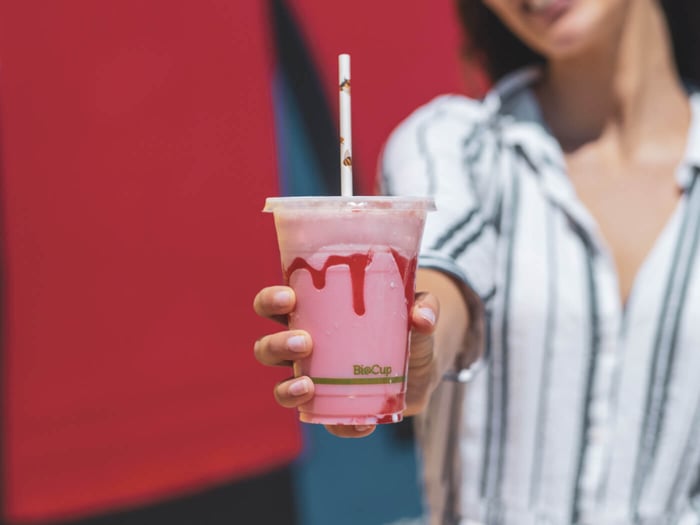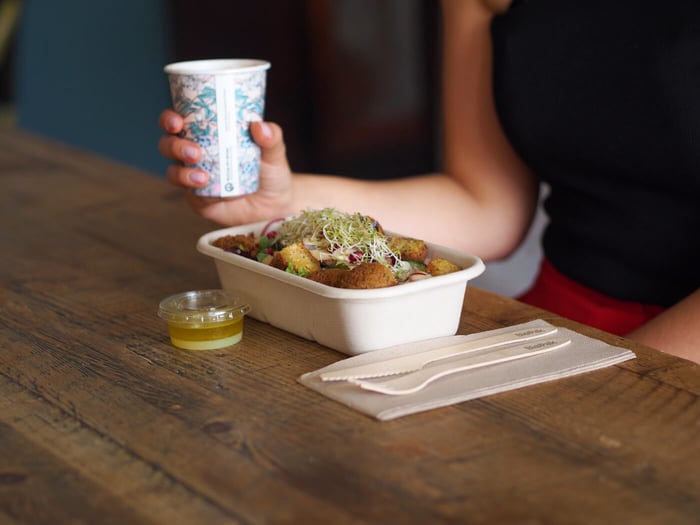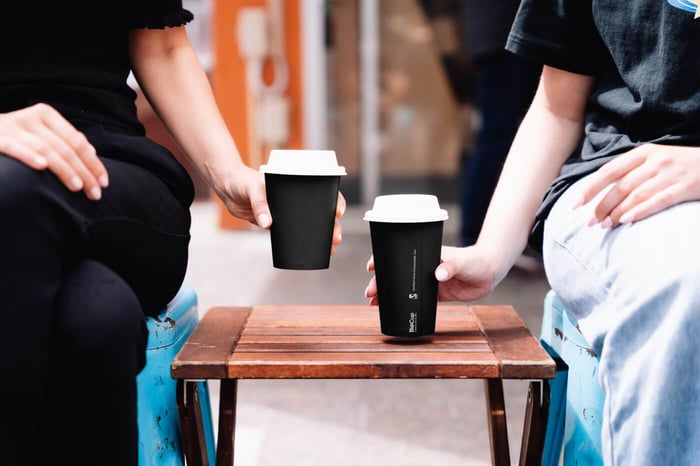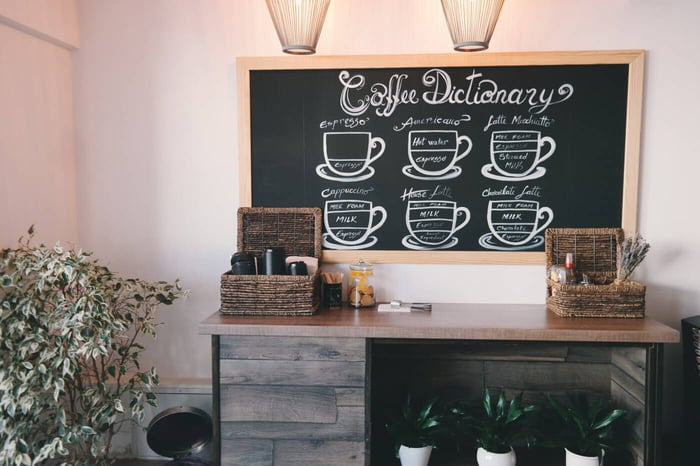Green packaging, such as bioplastic cups, has become increasingly popular in recent years as more people become aware of the importance of sustainability. However, with this increased interest comes an influx of misinformation and myths surrounding the effectiveness and sustainability of bioplastic products. In this blog post, we'll tackle some of the most common myths surrounding green packaging including biodegradable, eco-friendly, and compostable packaging, specifically focusing on BioCups. Our aim is to provide you with accurate information and help you make informed decisions about the products you choose to use.
Myth 1: PLA PLASTIC IS A POLYMER AND NO BETTER THAN REGULAR PLASTIC
 While it's true that PLA plastic is a polymer, it's important to note that not all plastics are created equal. Biodegradable coffee cups made from Ingeo™ PLA, like BioCups, are actually sourced from renewable plant resources, such as corn, rather than non-renewable fossil fuels. This means that their production requires 52% less energy, and their carbon footprint is 71.8% lower compared to traditional plastic. Additionally, these bioplastic cups are designed for the circular economy, able to biodegrade into nutrient-rich compost in industrial compost facilities. So, unlike regular plastic, these cups provide an eco-friendly alternative that helps reduce our reliance on fossil fuels and reduce waste.
While it's true that PLA plastic is a polymer, it's important to note that not all plastics are created equal. Biodegradable coffee cups made from Ingeo™ PLA, like BioCups, are actually sourced from renewable plant resources, such as corn, rather than non-renewable fossil fuels. This means that their production requires 52% less energy, and their carbon footprint is 71.8% lower compared to traditional plastic. Additionally, these bioplastic cups are designed for the circular economy, able to biodegrade into nutrient-rich compost in industrial compost facilities. So, unlike regular plastic, these cups provide an eco-friendly alternative that helps reduce our reliance on fossil fuels and reduce waste.
Myth 2: NO INDUSTRIAL COMPOST FACILITIES ACCEPT BIOCUPS
 Contrary to the myth that no industrial compost facilities accept BioCups, the reality is that over 30 commercial compost facilities across Australia and New Zealand currently accept BioCups for composting, with this number growing every week. This is due to the increasing demand for eco-friendly products and compostable packaging. Additionally, the BioPak Compost Service offers a convenient solution for businesses to dispose of their compostable packaging and food waste sustainably. The service is available in over 2,200 suburbs across every state, and has already helped divert 700 tonnes of waste from landfills in just one year. So, while there may have been some limitations in the past, BioCups are becoming more widely accepted in industrial compost facilities as the demand for sustainable alternatives increases.
Contrary to the myth that no industrial compost facilities accept BioCups, the reality is that over 30 commercial compost facilities across Australia and New Zealand currently accept BioCups for composting, with this number growing every week. This is due to the increasing demand for eco-friendly products and compostable packaging. Additionally, the BioPak Compost Service offers a convenient solution for businesses to dispose of their compostable packaging and food waste sustainably. The service is available in over 2,200 suburbs across every state, and has already helped divert 700 tonnes of waste from landfills in just one year. So, while there may have been some limitations in the past, BioCups are becoming more widely accepted in industrial compost facilities as the demand for sustainable alternatives increases.
Myth 3: BIOCUPS CAN'T BE RECYCLED IN RESIDENTIAL RECYCLING
 It is often believed that Biocups cannot be recycled in residential recycling streams, but the reality is that neither PE nor PLA-lined cups are suitable for such recycling programs. Instead, Biocups are designed to be composted as part of biodegradable packaging. In fact, they can be placed in green bin collections in residential areas alongside coffee residue, other compostable packaging, and food scraps. This is already possible in a growing number of locations, such as South Australia, where Biocups are composted in large-scale composting facilities. Additionally, businesses have access to the BioPak Compost Service, which operates in 13 major cities across Australia and New Zealand. Through this service, businesses can easily dispose of their compostable packaging and food waste, knowing that it will be composted in industrial composting facilities. So, while Biocups may not be suitable for traditional residential recycling streams, they can still be sustainably disposed of through composting programs.
It is often believed that Biocups cannot be recycled in residential recycling streams, but the reality is that neither PE nor PLA-lined cups are suitable for such recycling programs. Instead, Biocups are designed to be composted as part of biodegradable packaging. In fact, they can be placed in green bin collections in residential areas alongside coffee residue, other compostable packaging, and food scraps. This is already possible in a growing number of locations, such as South Australia, where Biocups are composted in large-scale composting facilities. Additionally, businesses have access to the BioPak Compost Service, which operates in 13 major cities across Australia and New Zealand. Through this service, businesses can easily dispose of their compostable packaging and food waste, knowing that it will be composted in industrial composting facilities. So, while Biocups may not be suitable for traditional residential recycling streams, they can still be sustainably disposed of through composting programs.
Myth 4: BIOCUPS DON'T BREAK DOWN INTO QUALITY COMPOST
 It is commonly believed that Biocups do not break down into quality compost, but the truth is quite the opposite. In fact, Biocups are independently certified to AS4736 standards and are designed to fully biodegrade into non-toxic, high-quality compost when disposed of in industrial compost facilities. Unlike traditional plastics, Biocups do not leave behind any harmful microplastics, ensuring a safer and more sustainable composting process. Through our compost service, our customers have helped create 50,000 x 10kg bags of compost, which have been used to return vital nutrients to the soil. This is a proven closed-loop solution that helps reduce waste and supports sustainable agriculture practices. So, rest assured that when you choose Biocups, you are making a responsible choice for the environment and contributing to a healthier planet.
It is commonly believed that Biocups do not break down into quality compost, but the truth is quite the opposite. In fact, Biocups are independently certified to AS4736 standards and are designed to fully biodegrade into non-toxic, high-quality compost when disposed of in industrial compost facilities. Unlike traditional plastics, Biocups do not leave behind any harmful microplastics, ensuring a safer and more sustainable composting process. Through our compost service, our customers have helped create 50,000 x 10kg bags of compost, which have been used to return vital nutrients to the soil. This is a proven closed-loop solution that helps reduce waste and supports sustainable agriculture practices. So, rest assured that when you choose Biocups, you are making a responsible choice for the environment and contributing to a healthier planet.
Myth 5: BIOCUPS COMPOST IN LANDFILL
 It is important to note that in an ideal world, no cups or biodegradable packaging should end up in landfills. When it comes to Biocups, while they are designed to biodegrade in an industrial compost facility, they can also compost in landfill conditions. However, the process of biodegradation in landfill sites is not ideal and can result in the harmful emission of methane gas. This is why it is essential to dispose of Biocups and other food packaging in the right way, either through industrial compost facilities or through green bin collections that are available in some areas. Nonetheless, if Biocups do end up in landfill, they still have contributed less greenhouse gases and used less non-renewable energy in their production compared to regular cups made from traditional plastics like PE. By choosing Biocups, you are still making a responsible choice for the environment and contributing to a healthier planet.
It is important to note that in an ideal world, no cups or biodegradable packaging should end up in landfills. When it comes to Biocups, while they are designed to biodegrade in an industrial compost facility, they can also compost in landfill conditions. However, the process of biodegradation in landfill sites is not ideal and can result in the harmful emission of methane gas. This is why it is essential to dispose of Biocups and other food packaging in the right way, either through industrial compost facilities or through green bin collections that are available in some areas. Nonetheless, if Biocups do end up in landfill, they still have contributed less greenhouse gases and used less non-renewable energy in their production compared to regular cups made from traditional plastics like PE. By choosing Biocups, you are still making a responsible choice for the environment and contributing to a healthier planet.
In conclusion, Biocups represent a green packaging initiative, offering an eco-friendly solution for takeaway cups that are made from renewable resources and have a lower carbon footprint compared to regular plastic cups. While there are some misconceptions about Biocups, such as their ability to biodegrade and compost, it is important to note that when they are disposed of properly in an industrial compost facility, they can completely biodegrade into a non-toxic, high-quality compost. Furthermore, through the BioPak Compost Service, Biocups can also be composted in green bin collections in some areas. Choosing Biocups is a responsible choice for the environment, helping to reduce the use of non-renewable resources and greenhouse gas emissions, and contributing to a healthier planet.





